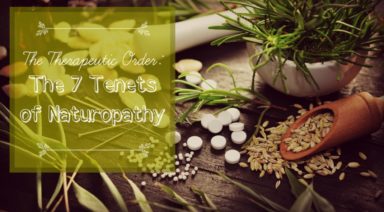The Essential Oils Guide for Beginners

Essential oils have been used for thousands of years as remedies, skin therapies, and personal fragrances. The ancient Egyptians, Greek, Indians, and Chinese all used concentrated oil from plants and herbs for a multitude of purposes. Today, essential oils are as effective as ever, but with so many different types it’s hard to know where to begin.
Sacred Touch Essential Oils
Essential Oil Benefits and Uses
Essential oils are the extracted oils from various plants and herbs that are concentrated for some therapeutic benefit. They can be used for health purposes, aromatherapy, cleaning, and beautification. Ayurvedic medicine has its roots in their use and certain essential oils are iconic scents for different cultures. The earthy, spicy aromas of sandalwood, cinnamon and ginger are a common Indian blend, while in Egypt eucalyptus, cyprus, and cedar were some of the most favorited scents.
These ancient cultures had an array of different blends and purposes for individual oils, used to treat ailments or anoint the dead before burial. If they weren’t healing the sick, they were used as perfumes and household essences.
Today, these same uses can be employed to make your home smell wonderful and lift your vibration. Some essential oils are even able to be consumed in small, diluted doses to treat stomach maladies, detox, or improve your general wellbeing.
For personal use, however topical treatments are the most common and safest; because oils can be so highly concentrated and potent, it’s best to be 100% sure before ingesting anything. Essential oils typically enter the GI tract quickly and are absorbed into the bloodstream where they are transported throughout the body. Certain oils can be very potent or caustic and can cause esophageal burning and undesired side effects, so it’s best to be sure you know whether its safe or not before ingesting.
Essential Oil Must Haves
Once you start getting into essential oils more seriously, you’ll want to have a collection at home that is readily available for their myriad uses. Everyone has their own preferences and tastes as to what they enjoy, so it is a good idea to explore different types and find the ones that suit you the best. Here is a list of our 10 favorite, everyday essential oils and their benefits:
Lemon:
A common ingredient for household cleaning supplies due to its fresh and uplifting scent. Typically pressed from the peels and pith of lemons, the citric acid in this fruit kills bacteria and provides a fresh, purifying odor. Obviously it’s a great oil for use in cleaning the kitchen and can be used on just about any culinary tool, but lemon oil can also be used to clean clothing.
For personal use, lemon can be used topically as a skin treatment due to it being a source of d-limonene, a common ingredient in cosmetic products. Limonene promotes circulation, and helps with wrinkles and toning. Lemon oil is also said to have an anti-anxiety/anti-stress effect when used for aromatherapy.
Peppermint:
One of the most common oils, familiar to nearly everyone, peppermint oil is used in everything from toothpaste, to chewing gum and body wash. Its antiseptic properties are powerful, hence its inclusion in nearly all of our personal hygiene products. But peppermint can also be used as a digestive aid and is also helpful for headaches and fevers.
Topically, peppermint oil is great for sore muscles. Menthol is derived from peppermint and similar oils. It is often used for physical aches as a muscle relaxant and for its cooling effect. The scent of it can also act as a stimulant that clears the head when pain is the only thing you can focus on – this can also give you a pick-me-up when you’re tired.

Eucalyptus:
A great essential oil to be used as a topical muscle relaxant and respiratory remedy; that’s why it’s used in vapor medicines and warming/cooling rubs. Eucalyptus oil has antifungal, antimicrobial, and anti-inflammatory properties – the jack of all trades. It is beneficial to those suffering from bronchitis, sinusitis, congestion, and even asthma.
Aside from its generally pleasant, clean aroma it can also induce mental clarity and boost your immune system. It’s truly a multi-faceted oil.
Sandalwood:
Known to have a calming effect that also increases clarity, harmony and peace, sandalwood is one of our favorites as a sedating scent. Most commonly used in incense and body oils, sandalwood has a sweet, spicy and earthy aroma. Sandalwood is known as a natural aphrodisiac that will increase libido, stamina and energy, and is great as a massage oil.
Like many other oils used topically it is antispasmodic, anti-inflammatory and good for preventing age-related skin issues. It has also been proven effective in decreasing systolic blood pressure for those with hypertension.
Cinnamon:
Cinnamon oil exudes feelings of warmth, coziness, and exotic, spicy flavors. You’re probably very familiar with cinnamon, but not necessarily all of its benefits. Cinnamon is also great as a topical soother for muscle pains, due to its analgesic properties. It is also known as an antispasmodic oil, preventing or mitigating muscle spasms.
It can also increase blood flow, due to its ability to dilate blood cells and enhance nitric oxide function. This helps to improve circulation while also decreasing inflammation. It is also known to help fight free radicals – the atoms that can cause cancer.
Rosemary:
Another oil with antioxidant and anti-inflammatory properties, Rosemary oil is commonly found in health and beauty products, due to its varied properties. Obviously, rosemary is used most commonly in cooking, but this herb’s medicinal value is also extensive. Rosemary has been known to support nerve growth, improve circulation, and even improve blood flow to hair follicles.
As far as your hair goes, rosemary can also help with dandruff, itchy scalp, and premature graying. Its beneficial for your flowing locks and the nerve endings responsible for their growth, making it a great oil supplement for your hair treatment.
Tea Tree:
Also known as melaleuca, tea tree oil is used as an antiviral, antifungal, antibiotic, and expectorant, having some of the most medicinal properties out of any of the others. It even has cancer fighting properties shown to slow the growth of tumors in rodents.
Topically, it can be used to naturally treat skin conditions like acne, without completely drying out the skin like most treatments do. It is great for treating blemishes and moisturizing the skin, while also used as an effective hand sanitizer.
Lavender:
One of the most common oils for air fresheners and aromatherapy, lavender is an oldie, but a goodie. It can also be used in first aid applications to help treat cuts and wounds. It has antispasmodic, anti-anxiety, antimicrobial and antibacterial properties, making it great for anything that we put on our skin.
For the insomniac or person struggling to get to bed, lavender helps decrease anxiety and stress, while promoting drowsiness. Putting lavender oil on your sheets and pillows will help in that battle to fall asleep. It is also another one of those oils that can ease muscle tension and provide a calming sensation that helps enhance deep slumber.
Myrrh:
Another oil that benefits oral hygiene, Myrrh can help treat gum disease and infections in the mouth. Oral or otherwise, myrrh can treat ulcers and wounds and may even be an effective treatment for skin cancer.
Myrrh is anti-parasitic and anti-fungal for minor skin conditions involving ringworm, athlete’s foot and parasite fascioliasis infections. Internally, myrrh can help with digestive issues that normally might be treated with bismuth subsalicylate, including gas, upset stomach, indigestion, etc.
Rose:
Rose oil, aside from its association with love and romance, has many surprising health benefits. Maybe the reason that the rose has become symbolic of love is not just because of its physical beauty, but because rose oil has psychological effects that boost confidence, self-esteem, and act as a natural antidepressant. And of course, it’s a natural aphrodisiac.
Physically, rose oil is also good for treating wounds, reducing inflammation and protecting against viruses. It is a natural astringent that is good for the skin and hair, while also capable of strengthening teeth and gums.
With essential oils having such broad applications, it’s no wonder they’ve been around for so many years and continue to be used today. Their medicinal value is still maintained in our modern medicine, but with many chemical ingredients and compounds that mask their organic value. If we can cut out those synthetic ingredients and focus more on the organic compounds found in essential oils, we may be able to solve some basic ailments without putting so many chemicals into our bodies.
Rhododendrons, Essential Oils and Challenging Conditions
You Can Rewire Your Brain to Eliminate Chronic Back Pain

A groundbreaking new study shows the remarkable efficacy of a brain-based treatment for chronic back pain. It provides new hope for a debilitating problem.
One in five Americans suffers from chronic pain, most often without receiving many benefits from invasive and costly treatments.
The most common type of chronic pain is chronic back pain- in 85% of cases of which no physical cause can be identified.
Dr. Yoni Ashar is a clinical psychologist and neuroscientist who studies psychological treatments for chronic pain. He recently led a study at the University of Colorado Boulder to determine whether a psychological treatment can eliminate chronic back pain — something no other therapy has ever before been scientifically proven to do.
“Our society predominantly thinks about chronic pain through a biomechanical, medical perspective. The most common treatments are physical; they’re injections or physical therapy, something targeting the body. What we’re learning more and more is that in many cases of chronic pain the problem lies in the mind or the brain. And we now have decades of research, both in neuroscience medicine and psychology, showing that there are a lot of changes that happen in the brain during chronic pain. In many cases, these can cause the pain to persist after an injury has healed.”
An important distinction that should be made when discussing chronic pain is that between the two types — primary and secondary.
“With secondary chronic pain, the pain is secondary to some medical problem or disease. With primary pain the pain is the primary problem, it is not secondary to anything else. What really is driving it are neuroplastic changes in the brain, and fear and avoidance. Fear is at the heart of chronic pain, so pain is a danger signal. The fundamental function of pain is to guide a person or animal away from things that are dangerous and when we perceive things to be dangerous that can amplify or even create this pain in our brains.”







































